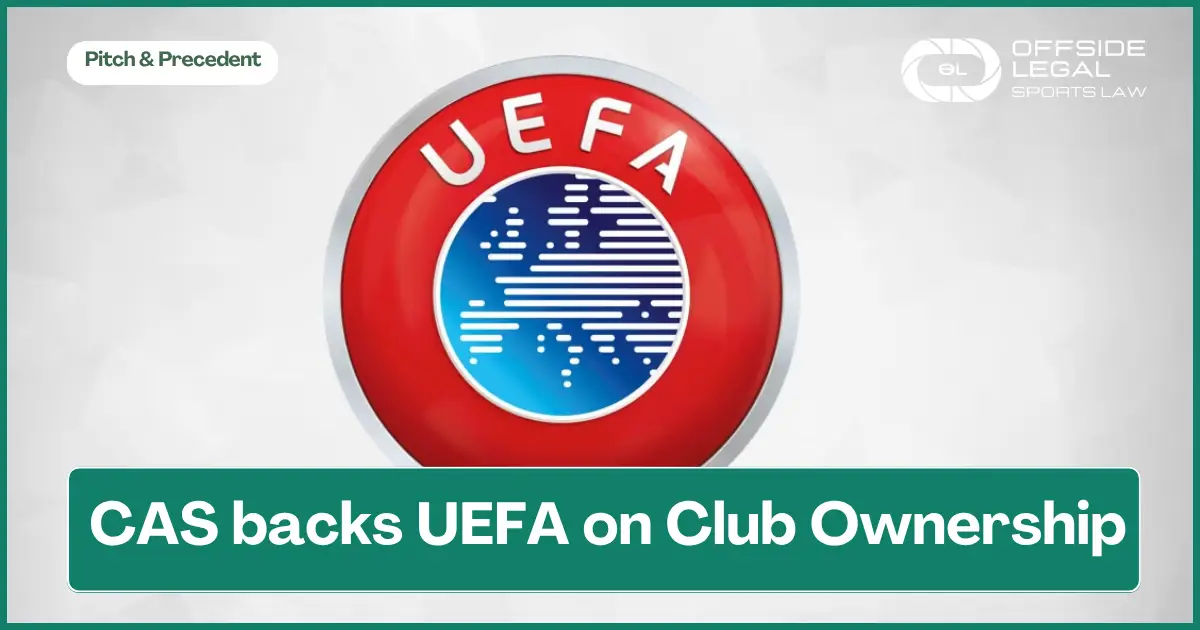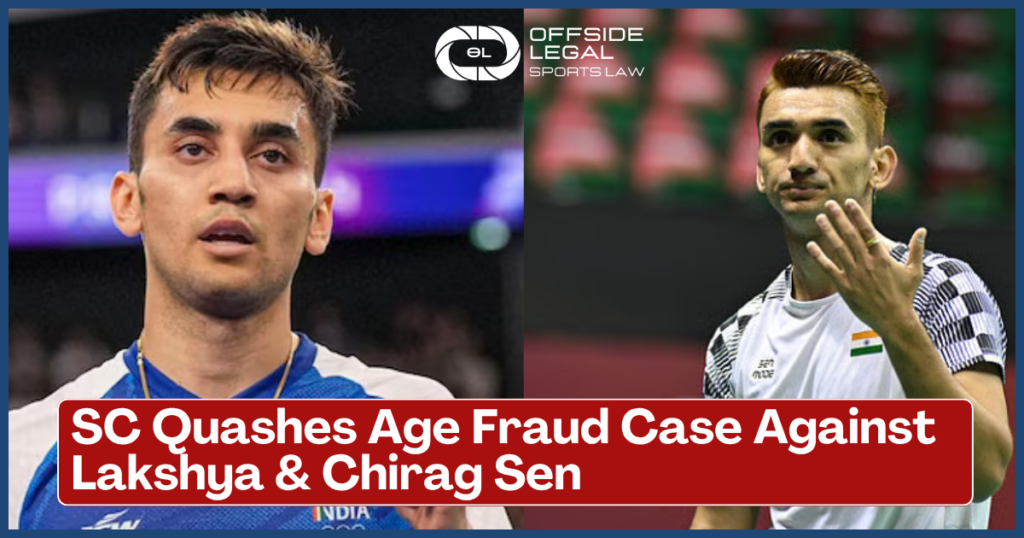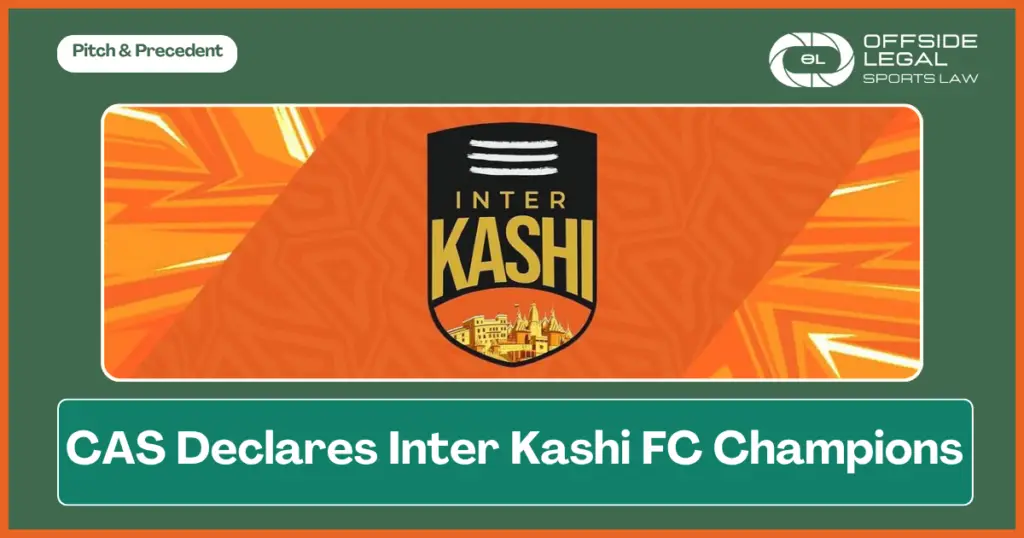CAS Decision on UEFA Multi-Club Ownership Rules: Introduction
CAS decision on UEFA Multi-Club Ownership Rules: The Court of Arbitration for Sport (CAS) has dismissed the appeal filed by Slovakian football club FK DAC 1904 A.S. (DAC) challenging its exclusion from the 2025/2026 UEFA Conference League. The arbitral panel upheld UEFA’s decision, finding DAC in breach of Article 5.01 of the UEFA Club Competition Regulations, in what has now become a landmark CAS decision on UEFA multi-club ownership rules.
Background and Legal Framework
At the core of the dispute was the application of the UEFA multi-club ownership rules, designed to prevent any natural or legal person from exercising control or decisive influence over more than one club participating in the same UEFA competition. This CAS decision on UEFA multi-club ownership rules reinforces the principle that competitive integrity depends on clear separation in ownership and governance among clubs.
UEFA’s Club Financial Control Body (CFCB), in its decision dated 26 June 2025, held that DAC was non-compliant with these rules as of the revised assessment date. DAC and Hungarian club Györi ETO FC (ETO FC) were found to have overlapping governance through EEA Holding B.V., a financial holding company. Three members of the same family were reportedly involved in both clubs’ shareholding and executive structures.
The most notable concern involved one individual who simultaneously served as Managing Director of ETO FC and as CEO, Vice-President, and board member of DAC. UEFA concluded that such overlap allowed for potential influence across both clubs—directly contravening the UEFA multi-club ownership rules, which were central to this CAS decision.
The Appeal Before CAS
DAC argued before CAS that UEFA had improperly advanced the assessment date from 3 June 2025 to 1 March 2025 without adequate justification or due process. It claimed that the ownership structure under EEA Holding B.V. posed no real risk of influence or control, and that the application of the rules was factually flawed and legally excessive.
CAS registered the appeal on 4 July 2025 and initiated an expedited arbitration due to the approaching season. The panel comprised Mr. Mark Andrew Hovell (UK) as President, with Mr. Bernhard Welten and Ms. Raphaëlle Favre Schnyder (both from Switzerland) as co-arbitrators. A virtual hearing was held on 14 July 2025, and the operative award was issued the same day.
Official Media Release: CAS decision on UEFA Multi-Club Ownership Rules
Key Findings and Decision
In its decision on UEFA multi-club ownership rules, the CAS Panel unanimously upheld UEFA’s position. The Panel confirmed that UEFA’s change in the assessment date was procedurally valid and within its regulatory discretion. More importantly, it determined that DAC had violated Article 5.01(b) and Article 5.01(c)(iv) by enabling a situation where one person could exert decisive influence over two clubs competing in the same UEFA competition.
The Panel clarified that the regulations do not require evidence of actual influence—only the possibility of it. This principle lies at the heart of the CAS decision on UEFA multi-club ownership rules and is essential to ensuring fair competition.
Also Read: Varsha Tekam Doping Ban
Implications and Conclusion
The ruling underscores the legal validity and binding nature of UEFA’s framework. It affirms that overlapping control—whether through ownership, management, or indirect governance—can trigger regulatory action and disqualification.
As a consequence of this CAS ruling, DAC remains disqualified from participating in the UEFA Conference League for the 2025/26 season. The outcome demonstrates that UEFA’s enforcement of multi-club ownership safeguards will not be compromised and that any violation, even if indirect, will face full scrutiny under arbitration.
This CAS decision on UEFA multi-club ownership rules sets a significant precedent for clubs and investors across Europe. In an era of increasing multi-club investment strategies, the ruling serves as a timely and forceful reminder that adherence to UEFA’s integrity principles is not optional but a prerequisite for participation.










